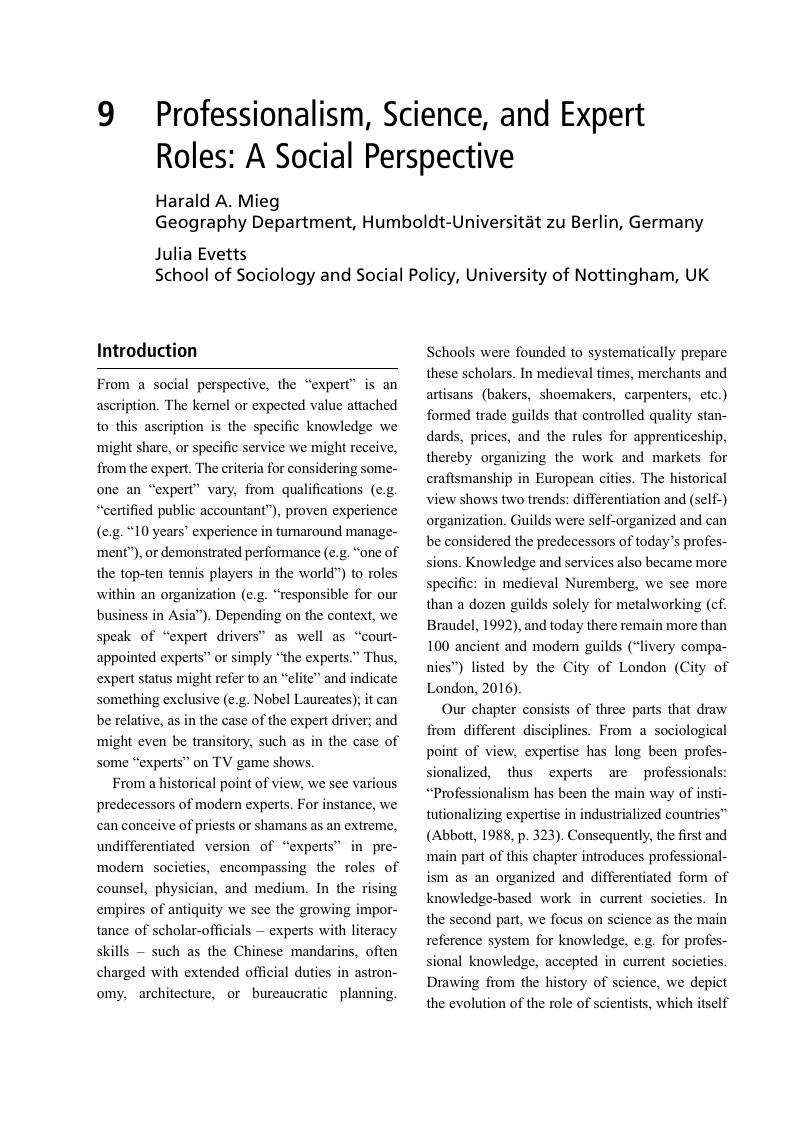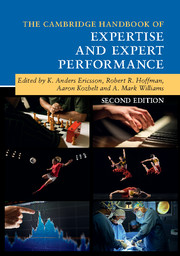Book contents
- The Cambridge Handbook of Expertise and Expert Performance
- The Cambridge Handbook of Expertise and Expert Performance
- Copyright page
- Contents
- Notes on Contributors
- Acknowledgments
- Part I Introduction and Perspectives
- Part II Overview of Approaches to the Study of Expertise: Brief Historical Accounts of Theories and Methods
- 6 Studies of Expertise from Psychological Perspectives: Historical Foundations and Recurrent Themes
- 7 Expert Systems: A Perspective from Computer Science
- 8 Developing Occupational Expertise through Everyday Work Activities and Interactions
- 9 Professionalism, Science, and Expert Roles: A Social Perspective
- Part III Methods for Studying the Structure of Expertise
- Part IV Methods for Studying the Acquisition and Maintenance of Expertise
- Part V.I Domains of Expertise: Professions
- Part V.II Domains of Expertise: Arts, Sports, Games, and Other Skills
- Part VI Generalizable Mechanisms Mediating Types of Expertise
- Part VII General Issues and Theoretical Frameworks
- Index of Subjects
- References
9 - Professionalism, Science, and Expert Roles: A Social Perspective
from Part II - Overview of Approaches to the Study of Expertise: Brief Historical Accounts of Theories and Methods
Published online by Cambridge University Press: 10 May 2018
- The Cambridge Handbook of Expertise and Expert Performance
- The Cambridge Handbook of Expertise and Expert Performance
- Copyright page
- Contents
- Notes on Contributors
- Acknowledgments
- Part I Introduction and Perspectives
- Part II Overview of Approaches to the Study of Expertise: Brief Historical Accounts of Theories and Methods
- 6 Studies of Expertise from Psychological Perspectives: Historical Foundations and Recurrent Themes
- 7 Expert Systems: A Perspective from Computer Science
- 8 Developing Occupational Expertise through Everyday Work Activities and Interactions
- 9 Professionalism, Science, and Expert Roles: A Social Perspective
- Part III Methods for Studying the Structure of Expertise
- Part IV Methods for Studying the Acquisition and Maintenance of Expertise
- Part V.I Domains of Expertise: Professions
- Part V.II Domains of Expertise: Arts, Sports, Games, and Other Skills
- Part VI Generalizable Mechanisms Mediating Types of Expertise
- Part VII General Issues and Theoretical Frameworks
- Index of Subjects
- References
Summary

- Type
- Chapter
- Information
- The Cambridge Handbook of Expertise and Expert Performance , pp. 127 - 148Publisher: Cambridge University PressPrint publication year: 2018
References
- 5
- Cited by



